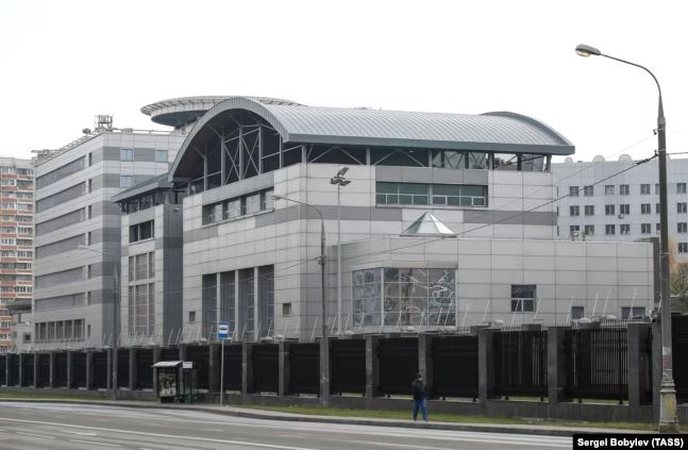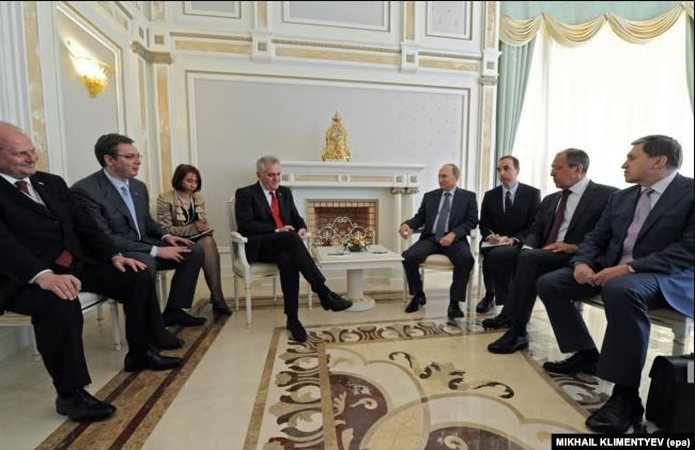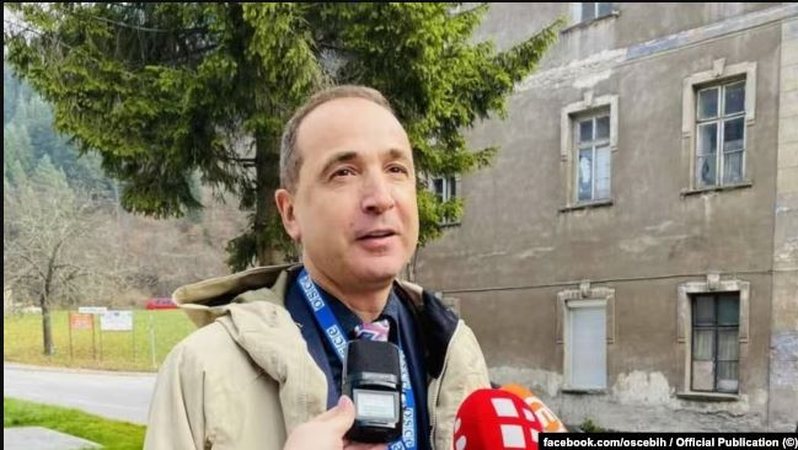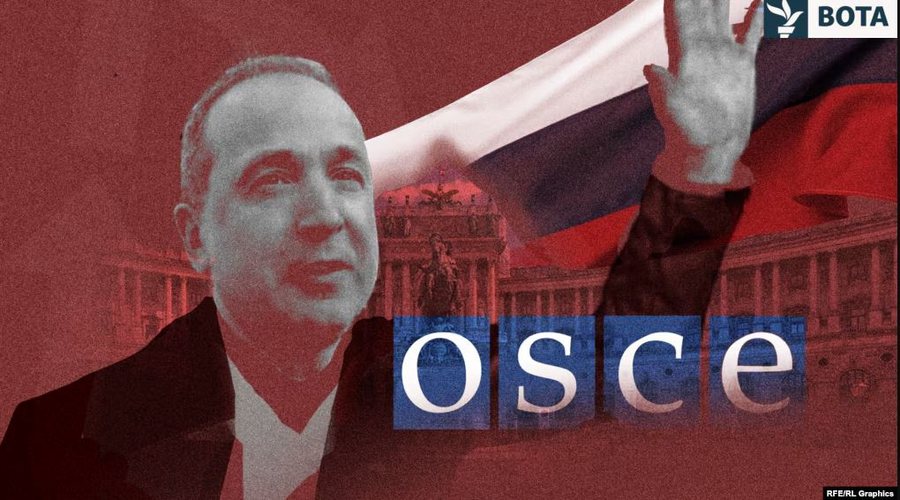
A Russian diplomat, recalled from Brussels amid a spy purge by Belgian authorities, has been nominated to head the Belgrade mission of Europe's largest security body, according to a joint investigation by Radio Free Europe and several European media outlets.
Moscow has nominated Dmitry Iordanidi, a former deputy head of the Organization for Security and Cooperation in Europe (OSCE) mission in Bosnia and Herzegovina, with extensive experience in the Balkans, to head the organization's mission in Serbia, according to internal OSCE documents obtained by REL.
His candidacy came amid growing accusations from the United States and European governments in recent years of "malign" Russian activities in the region covered by the 57-nation regional security organization, headquartered in Vienna.
Iordanidi, 55, is one of 20 Russian diplomats who quietly left Brussels in 2023 over accusations by the Belgian State Security Service (VSSE) that they were spies operating undercover, according to a list compiled by Belgian intelligence and independently verified by three Western intelligence sources, according to a joint investigation by REL, the Brussels-based news website EUobserver, the Belgian newspaper De Morgen, the Belgian weekly magazine Humo and the French newspaper Le Monde.
A source from the intelligence institutions called this withdrawal of spies an "opportunity to empty our drawer" after Russia's complete invasion of Ukraine in February 2022.
While the Belgian government does not publish lists of diplomats accredited in the country and the Russian diplomatic mission in Brussels does not publish the names of its personnel, REL independently verified the presence of some of the expelled Russian diplomats in Belgium in 2023.
The Russian diplomats, who have not been publicly identified so far, were linked on the list to Russia's Foreign Intelligence Service (SVR) or its military intelligence directorate, known as the GRU.
Iordanidi, whom the Belgian intelligence list identifies as having ties to the SVR, is the only diplomat among the 20 expelled who was not declared persona non grata, according to an intelligence source. The source said Russia recalled Iordanidi after Belgium communicated that he would be declared persona non grata if Moscow did not recall him.
Now, Moscow is trying to reinstate Iordanidi to the OSCE, the Vienna-based multilateral organization that, until Russia's invasion of Ukraine in 2022, had played a central role in monitoring Russian aggression in Ukraine and trying to mediate between Moscow and Kiev.
Iordanidi was listed as one of eight candidates for the head of the OSCE mission to Serbia after the application deadline of December 1, 2024, according to the document obtained by REL.
An internal OSCE document shows that Dmitry Iordanidi, who was expelled from Belgium, is a candidate to head the OSCE mission in Serbia.
Russia has also nominated him to head an OSCE program office in the Kyrgyz capital, Bishkek, as well as for the same position in the Kazakh capital, Astana.
The OSCE said in an emailed statement that recruitment for all three positions is still ongoing and that it could not comment on the matter, citing confidentiality.
The positions are appointed by the OSCE Chairperson-in-Office – a position currently held by Finnish Foreign Minister Elina Valtonen – in consultation with current and former senior OSCE officials, as well as the host countries of the respective missions, said OSCE spokesperson Alexandra Taylor.
"We follow a rigorous recruitment process for all of our positions at the OSCE," Taylor said.
Western officials and governments have accused Moscow of acts of sabotage against the OSCE and of abusing the organization's consensual policies, including in relation to Russia's war in Ukraine - which has now become the largest and bloodiest conflict in Europe since World War II.
Russia has criticized the OSCE, claiming that it is "being reformed to become an appendage of NATO and the EU."
Following REL's investigations into alleged Russian intelligence influence in the OSCE, the organization's Parliamentary Assembly, which facilitates dialogue between member states, called on the OSCE leadership "to initiate discussions and security checks to rid the organization of destructive Russian influence."
Russia has previously placed its diplomats expelled by EU states for espionage in its embassy in Serbia, where President Aleksandar Vucic has attempted to maintain Belgrade's traditionally strong relations with Russia, according to a March 2023 investigation by REL.
Neither Iordanidi nor the Russian Embassy in Brussels responded to requests for comment. The VSSE also did not respond.
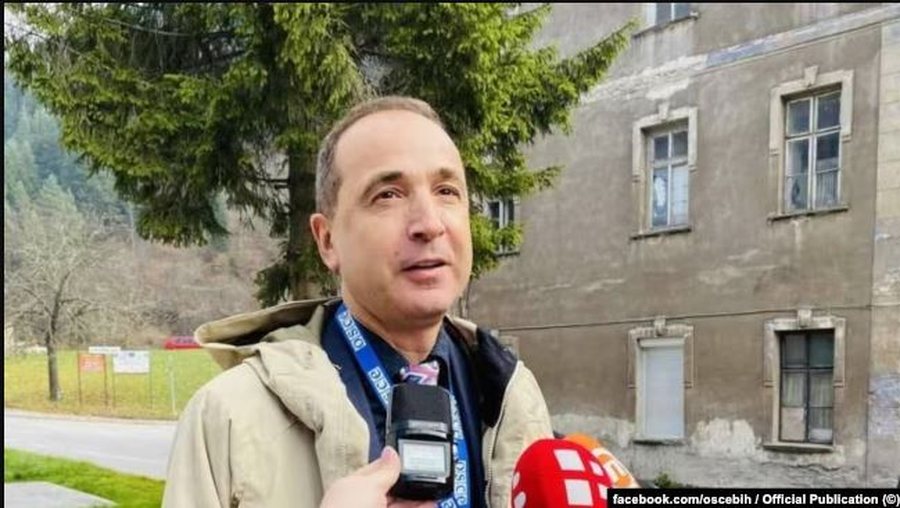
Balkan Travels
Following the Russian invasion of Ukraine in 2022, hundreds of Russian diplomats were expelled by the United States and EU governments, including those stationed at Russia's diplomatic mission in Belgium and the EU, in Brussels.
Among them was Aleksandr Studenikin, who was expelled from the EU for “illegal and destabilizing actions,” but resurfaced as an OSCE election observer for the December 2023 parliamentary and local elections in Serbia, according to an investigation by REL.
Iordanid's public presence in the Belgian capital was not very significant, although it appears that he arrived there at some point during 2023, in a geographical break from a diplomatic career focused mainly on the Balkans.
Public records show that, as of 2009, he served as the first political secretary at the Russian Embassy in Sarajevo and, a few years later, as the head of the OSCE office in Banja Luka, the administrative center of Bosnia and Herzegovina's Serb entity, Republika Srpska.
In May 2013, Iordanidis sat between Russian President Vladimir Putin and Foreign Minister Sergei Lavrov during a meeting with then-Serbian President Tomislav Nikolic at Putin's summer residence in the southern city of Sochi. Vučić, then Serbia's defense minister and first deputy prime minister, was also present.
Later, Iordanidi became Deputy Head of the OSCE Mission to Bosnia and Herzegovina, in Sarajevo, and appears to have left this post sometime in late 2022 or early 2023.
A source within the OSCE, who spoke on condition of anonymity, recalled that Iordanidi had left Sarajevo for Belgium, and one of the intelligence sources contacted for this report said that he arrived in 2023 and left under pressure that same year.
Journalists failed to find any evidence of Iordanid's placement at the Russian Embassy in Brussels during his brief stay there, in stark contrast to his time at the OSCE in Bosnia and Herzegovina, where he gave frequent interviews and made public appearances.
Much of his previous public work with the OSCE in the Balkans was related to environmental issues and the promotion of civil liberties.
Leaked Russian government records – such as residence, vehicle and tax records – reviewed by REL do not reflect any clear paper connection between Iordanid and Russian intelligence. However, they do show links to other Russians involved in Belgian spy purges, in which Iordanid was also implicated.
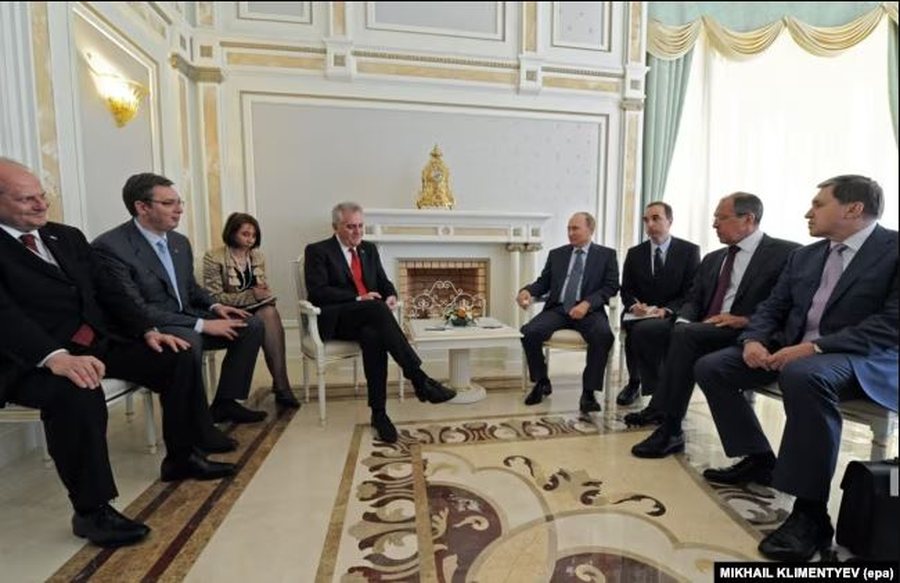
GRU people in Brussels
Among the 19 other Russian diplomats on the Belgian intelligence list of suspected spies, in addition to Iordanid, was Aleksandr Kovalchuk, who officially served as a counselor at the Russian Embassy in Brussels.
Leaked residential records list Kovalchuk’s registered address as Ulitsa Narodnogo Opolcheniya 50 in Moscow, the same address as the Military Academy of the Russian Ministry of Defense. The academy is widely known as the “GRU Conservatory” — a reference to Russia’s military intelligence directorate.
Also on the list of diplomats suspected of being spies was Sergei Cherepanov, who served as second secretary at the Russian Embassy in Brussels. Leaked Russian government records show that he had previously worked at the Strategic Missile Forces Academy in Moscow and was registered at an address linked to Military Unit 46179, which specializes in seismic and infrasonic satellite surveillance under the 12th Directorate, which is responsible for nuclear security.
The listed address of another expelled Russian diplomat, Dmitry Zamogilnykh, who worked on the embassy's technical staff, was linked to Military Unit 92154, a GRU special forces division.
Meanwhile, one of the expelled diplomats, Sergei Gudilin, had photographed a military facility near the Belgian capital, according to publicly available data on his account on the fitness app Strava.
In July 2021, he posted a photo on his Strava account of the radar station in Bertem, part of Belgium's air traffic control network, which provides radar data to the Belgian military.
Questions sent to the listed email addresses for Kovalchuk, Cherepanov, Zamogilnykh, and Gudil remained unanswered.
According to the list, Belgium's purges led to the expulsion of a total of 20 suspected Russian spies, adding to 48 previous expulsions of members of Russian delegations to the EU and NATO.
"Belgium wants to maintain normal diplomatic relations with Russia, but cannot allow these relations to be misused for espionage purposes," said Belgian Foreign Ministry spokesman Pierre Steverlynck.
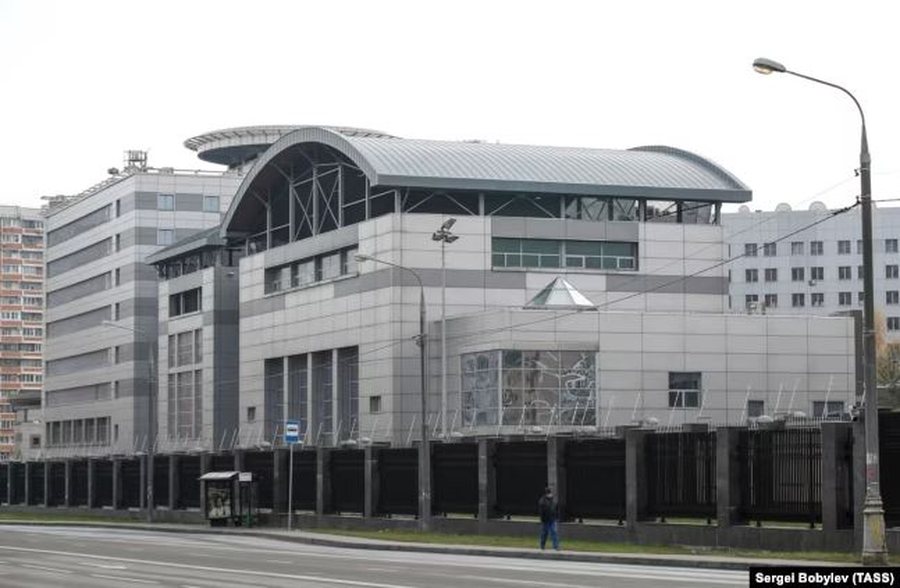
Evolving threats
While European countries have collectively expelled more than 700 Russian diplomats – including suspected spies – since Russia's invasion of Ukraine began in 2022, Western experts warn that the threat from Moscow is evolving.
“We saw… a temporary reduction in the ability of Russian intelligence services to conduct malicious operations in our countries, but it has returned,” James Appathurai, a senior NATO official specializing in hybrid warfare, said in an interview with EUobserver.
Appathurai said Russia has shifted to online recruitment, increasingly engaging criminal gangs and unsuspecting individuals for acts of sabotage.
“These recruits often don’t even realize who they’re working for,” Appathurai said. “They commit arson, sabotage on railways, even attacks on politicians’ properties — all with Russian intelligence leading the movements from the shadows.”
German magazine Der Spiegel reported last month that German investigators suspect that a wave of car vandalism incidents in the country were funded by a Russian client and carried out by low-level associates under the guise of climate activism.
Prosecutors in the southern German city of Ulm said four suspects had been detained in connection with more than 100 cases of vandalism, in which high-strength foam was used to block car exhaust pipes. The suspects included nationals from Romania, Serbia and Bosnia.
Polish Prime Minister Donald Tusk in January accused Russia of plotting terrorist attacks on unspecified targets using aircraft, following two separate incidents in which a DHL shipment caught fire in Lithuania and Britain.
"I will not go into details, I can only confirm the validity of the fear that Russia was planning acts of air terrorism, not only against Poland, but also against airlines around the world," Tusk said at a press conference.
Moscow has repeatedly denied accusations by Western governments of its involvement in terrorist attacks, including arson, poisonings and attacks on individuals in the West.
Mirjana Jevtović from REL's Balkan Service contributed to this report.
Prepared by: Doruntina Baftiu. (A2 Televizion)

